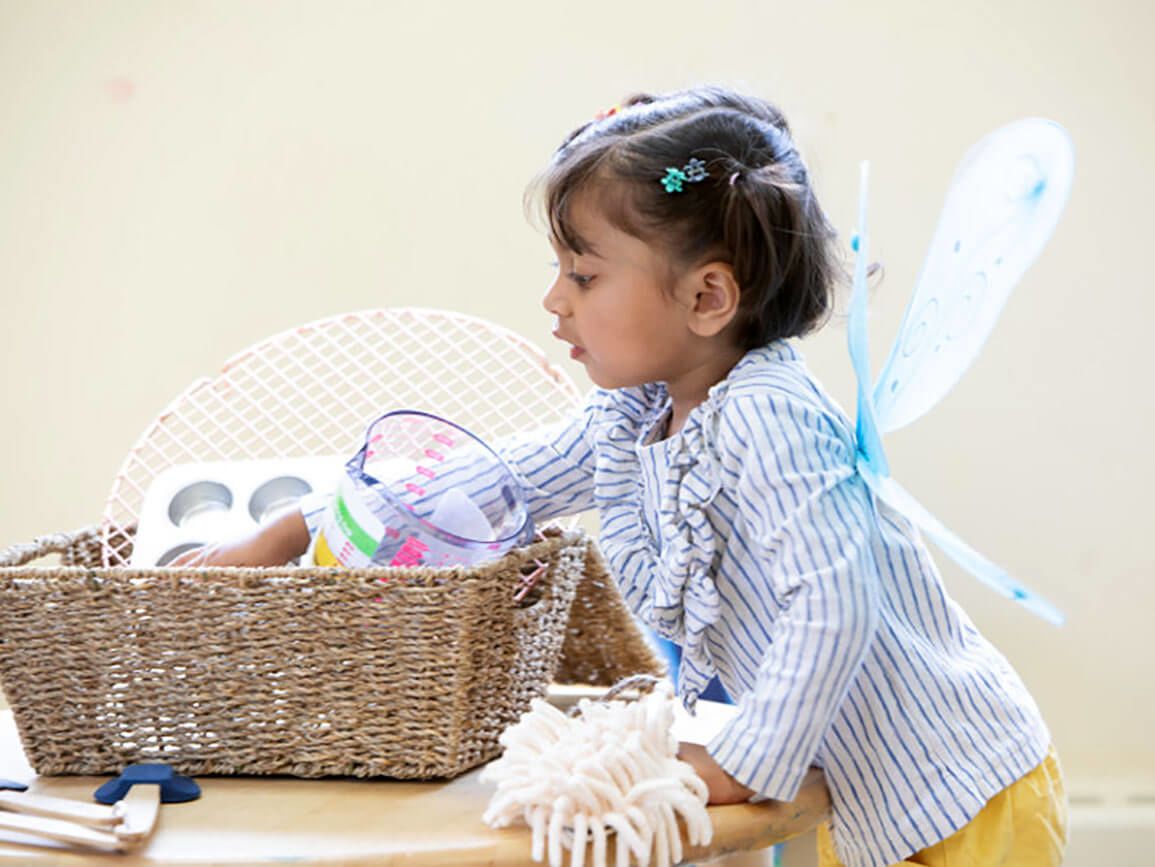What is kindergarten
Kindergarten is a fun-filled, exciting experience that marks the beginning of your child’s formal educational journey. Your child may have spent time in a preschool or pre-k program during their earlier years, setting the groundwork for this next step. However, you may still be wondering: “What exactly is kindergarten?”, and “What can I expect?”
Let’s take a look at what’s happening behind kindergarten doors.What age does kindergarten start?
Kindergarten is typically the first formal year of schooling for children, beginning around age 5. The required age to start Kindergarten varies by state and school district, so ensuring you are familiar with your specific resources will be critical in navigating this transition.
Varying by state and school district, kindergarten registration generally takes place during the winter/spring of the current school year. Many families will automatically begin receiving school communications around this time; tools like the town census help inform those who may be of kindergarten age. Families who have not received any communications are encouraged to reach out to their child’s school to learn the steps to registration and ensure the school is aware of your incoming kindergartener. This ensures that you will receive important information moving forward including registration deadlines, screening information, as well as family information sessions, school visit dates, and more.
What will my child learn in kindergarten?
If your child has been previously enrolled in a high-quality preschool and/or pre-k program, they most likely have a strong foundation for the year ahead in kindergarten. These programs are designed to prepare children for kindergarten by fostering crucial social-emotional, language, and cognitive skills through play-based learning experiences.
Kindergarten teachers are taking these foundational skills and building upon them to enhance each child’s future-ready skills. Skills such as collaboration, communication, content (math, science, literacy, history), critical thinking, creative innovation, and confidence are essential life skills and competencies children need in order to be successful in kindergarten and beyond.
In a high-quality kindergarten program:
- We PLAY. Most kindergarten programs have slightly more structure than a pre-k program, with a mix of guided instruction, group activities, and independent work. High-quality kindergarten programs will continue to keep play at the forefront of instruction as research tells us play is learning. Through hands-on experiences, group work, and independent studies, children are learning cognitive, social-emotional and physical skills.
- We CONNECT. Relationships remain a critical component of success in a kindergarten program. We know in early care programs that children learn best within the context of nurturing and responsive relationships—a need that remains just as important as they step into kindergarten. The relationship between teacher and student, students and their peers, and families and teachers will be incredibly important in the kindergarten year and beyond, ensuring a successful home-school partnership.
- We EXPLORE. Through playful experiences, hands-on and interactive activities, children in kindergarten are offered a mix of self-directed investigations, small group work and teacher-directed assignments and activities, where heavier emphasis is placed on the process over the product.
- We BUILD. Through this process of exploration, children are building and honing social skills (sharing, empathy, resilience, initiative, making friends, problem-solving, collaborating, resolving conflict, respecting others and expressing themselves), cognitive skills (basic literacy to include reading, writing, letters, sounds, simple words, receptive and expressive language, basic math to include numeracy, addition, subtraction), physical skills (fine motor skills such as eye-hand coordination, pincer grasp, gross motor skills such as climbing, running and jumping).
- We are PART of a WHOLE. High quality kindergarten curriculum will focus on teaching lifelong habits including citizenship and social responsibility. Strong emphasis on the whole child will ensure children feel a sense of belonging and significance, understanding their role in the classroom community. Together, children work to create classroom expectations and predictable routines —reliable structures that not only reduce anxiety, but also ensure children feel capable, included and valued in their classroom community.
Kindergarten is a time of exploration, growth and learning. It is a vital stepping stone, offering more than just foundational academic knowledge, but a place where children develop crucial social skills, emotional resilience, and a love of learning. With the support of nurturing relationships and a stimulating environment, kindergarten lays the groundwork for a successful future, preparing young minds for the adventures of school and life ahead.
More Information on kindergarten
- Every day in kindergarten is an adventure designed to spark curiosity and help children grow in a myriad of ways. Each child is different and will approach this new journey in different ways—some with a bit more apprehension than others. Learn what you can do to support separation anxiety with your kindergartener.
- The transition to kindergarten is an exciting one with many new things to do and learn but it can also be an exhausting journey for your child. It is quite common to see a rise in behaviors that may not be typical for your child, or for them to experience heightened emotions during the first several weeks of Kindergarten. This is a huge transition children are working hard on learning, playing, and meeting new people. After a long day of keeping it together, children often feel free to “let it out” when they are back home in their safe space. Offer your child time, comfort and reassurance, while offering yourself grace at the same time.
Ready to take the next step?
At Bright Horizons, our kindergarten programs are designed to nurture the whole child—academically, socially, and emotionally—through hands on learning, caring relationships, and a strong sense of community.
Discover how your child can thrive in a Bright Horizons kindergarten classroom and find a center near you.



.ashx?as=1)

.ashx?as=1)